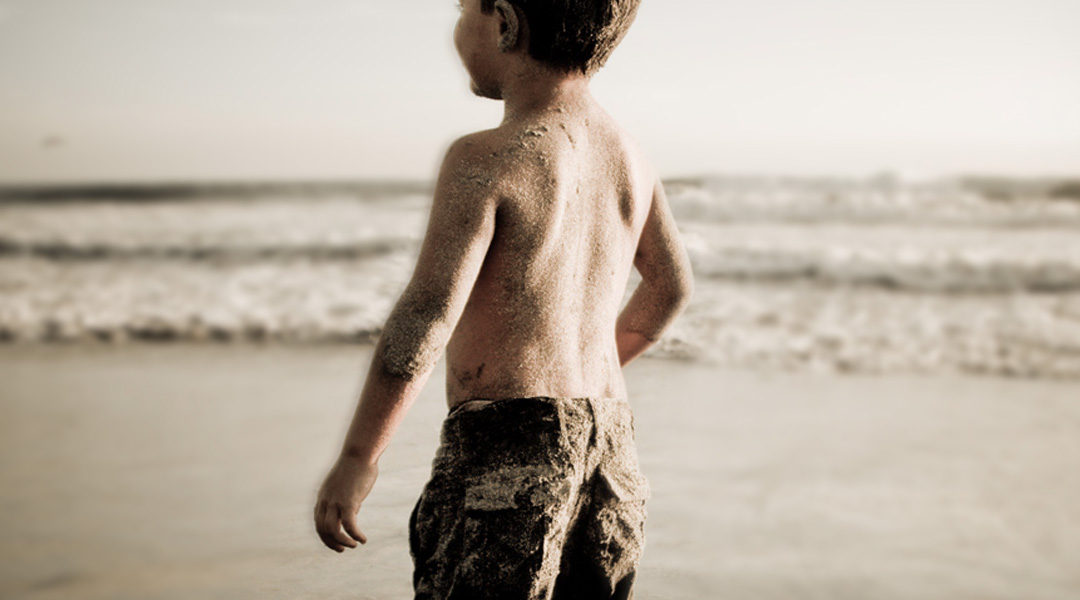“There is nothing the busy man is less busied with than living: there is nothing that is harder to learn…It takes the whole of life to learn how to live, and – what will perhaps make you ponder more – it takes the whole of life to learn how to die“. – Seneca (On Shortness of Life)
This weekend was an emotional one for me. My oldest son played his final basketball game at his school (Alpha school K-8th grade) last night. They had a special recognition ceremony for all of the 8th grade players. The players walked with their parents while their favorite basketball memories, athletic achievements and plans for high school were announced over the loud speaker. The team went on to win a close game (35-33) but the real impact of the night, for me, was a reminder that life is short. I feel very sad when I think of his time at Alpha coming to an end and am already nostalgic for his youth. He is only 13!
Why does this happen? Why can we not accept the impermanence of things? Accept that everything is always changing – minute by minute, day by day, year by year. Is that so hard? Mary Oliver, the famous poet states that she finds comfort in the fact that everything just continues in one form or another – there is no beginning or end in Nature. I don’t really find much comfort in that. I don’t want us to lose our youth, our kid’s childhoods, or our parents. It doesn’t matter to me that things may evolve or continue in other forms once they are gone. I want these forms and everything that exists today to stay exactly as it is!
I know that I am being unrealistic but this seems to be the problem with most of us. We want control over everything that happens. We want people to like us. We want our kids to make the team. We want our bosses to pay us more money. We want to get into better shape. We want to be happier. Unfortunately, we forget that we don’t have any control over the ultimate outcome – our death and the dying that we do every day. We all seem to be afraid of dying but most of us act as though we will live forever. We spend our time wasting most of our time. We get angry at minor inconveniences and fail to appreciate how good we really have it. We look ahead to the weekend or our next vacation and simply go through the motions at work. We expect people to act in a certain way and become upset when they act differently. We choose to gossip, drink too much, or watch hours of TV in an effort to “relax”. I am guilty of all of this! This is no way to live and we can do better. Rather than fill our lives with distractions to avoid thinking about our mortality, we must come to grips with death in order to learn how to live.
We all face the same pain. We face the pain of attachment to things as they are. We face the pain of longing for a certain future that may never come. We face the pain of existing but not really living. We face the pain of missing life twice – once as it happens and another as we look back. We face the pain of not making a difference. We face the pain of not knowing why we often feel like crying. We face the pain of remembering our youth. We face the pain of looking in the mirror. We face the pain inside of our heads.
These feelings have been present for thousands of years – why hasn’t anyone figured this out? How can we live in the present while learning to live well in the future? How do we make the most of today while ensuring a better tomorrow? How can we stop worrying over things that we know won’t matter in a year (or much less a month)? These are important questions to answer or at least ponder. Life is short. But the shortness of life should not be an excuse to hurry up and produce. It is just the opposite. We must slow down and savor the moments. What matters is our ability to make the most of things while they exist. Really feeling them. Really appreciating them. Really loving them. That is the key to impermanence and our lack of control – being present in an ever changing moment. Of course we can do what we can to ensure an optimal future – we can take care of our health, make smart financial decisions, and spend our days (so precious and few that they are) in the right way – filled with intention, purpose and presence – so that we may one day look back on a life well lived.
Looking back to last night – I knew at that time that I was going to one day miss that time. As a result, I really enjoyed having both sets of grandparents there to watch Christopher play his final game at Alpha. I felt grateful that all of us were together at dinner celebrating life rather than mourning the passage of time. I looked on with pride as my son was smiling and engaged in dinner conversation with his classmates. These are the ways to live. To realize that life is really short and to accept that things are constantly changing. To try to live each day as if it were our last. To really feel and appreciate each moment. Only by living this way can we really live. Time may be slipping away but this moment of writing is right here in front of me. My breaths may be dwindling in number but my next breath is deep and divine. The past is gone and the future may never come (certainly in the way we expect). What we have now is all we have now. Smile, breathe, feel, appreciate – repeat.
“It is not that we have a short time to live, but that we waste a lot of it.” – Seneca (On the Shortness of Life)

